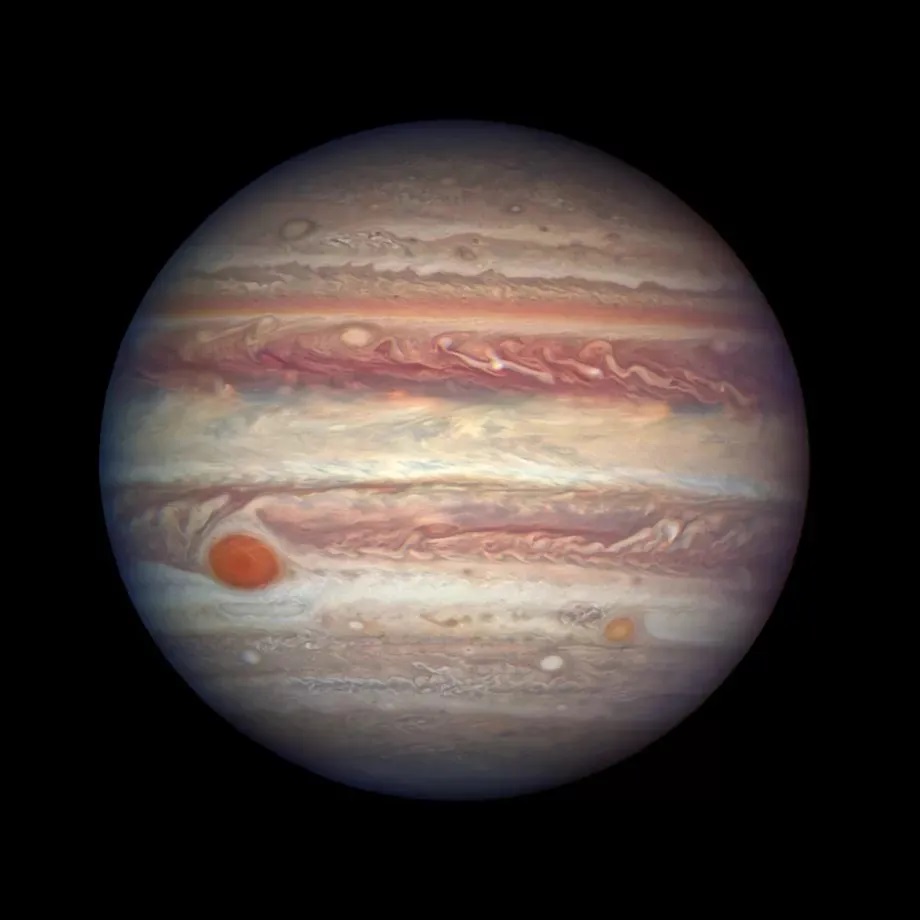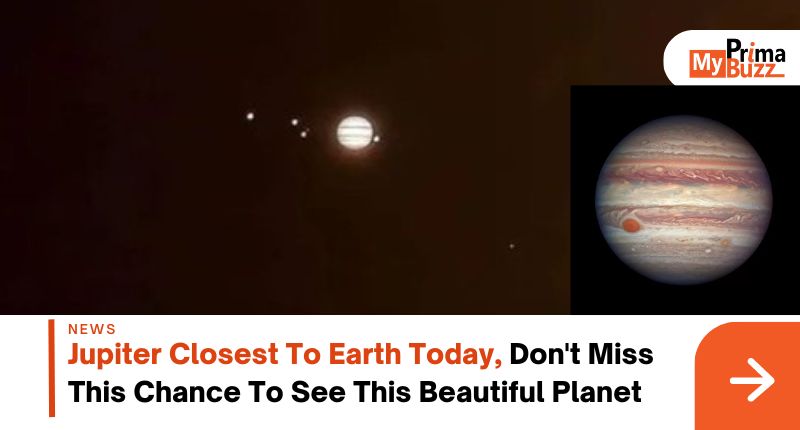September 27 this year is Jupiter opposition, which is the time when it is closest to the earth since 1963. This period is the best time to observe the planet.
Watch Jupiter Which Appear Larger and Brighter Than Usual

Jupiter is a giant milky orange gas giant and it is the largest planet in our solar system. The colourful streaks on the planet are swirling gas churned in giant storm systems. Some of these systems, like Jupiter's Great Red Spot, persist for centuries.
Because of the way it orbits the sun, the planet's awe-inspiring features will be significantly sharp relief on the night. Both Earth's and Jupiter's orbits are slightly elliptical, which means the distances between the two planets will vary. And the orbits of the two planets are completely different—one year on Jupiter, or the time it takes to go around the sun once, takes 12 Earth years.
At its farthest distance, the planet is about 600 million miles from Earth. But tonight, it's only 367 million miles away from us. It is on the opposite side of Earth from the sun tonight, a position known as an opposition, which makes the gas giant appear larger and brighter than usual.
The marvelous night sky.
— Prerna (@PPrernaaaaaaaa) September 26, 2022
Jupiter it is!!#Jupiter #Nightsky pic.twitter.com/9FriHb1gBD
According to Adam Kobelski, a research astrophysicist at NASA‘s Marshall Space Flight Center in Huntsville, Alabama, the planet's bands and several Galilean moons will be visible through good binoculars. ” One of the key needs will be a stable mount for whatever system you use,” Kobelski said in a NASA release.
A 4-inch or larger telescope will be able to identify specific features on the planet's surface, such as the Great Red Spot. If you don't have a telescope or decent binoculars, Jupiter can still be seen with the unaided eye, but you won't be able to see the planet in any detail.
Still, due to its proximity, its brightness will be more noticeable than usual. No matter how you choose to observe Jupiter, clear weather conditions, high altitude, and dark skies will help. While its closest approach on the night, Jupiter and its moons will be more visible over the next few nights, according to a NASA release.
The Crown Prince of Dubai has treated the world with one of the most amazing celestial events after capturing the #Jupiter through his lens.
— Aamir Hussain (@aamirhussain72) September 26, 2022
Sheikh @HamdanMohammed
captioned the video"Burj Khalifa meets the king of planets! The planet's closest approach to Earth in 59 years." pic.twitter.com/VWvxgc26vk

